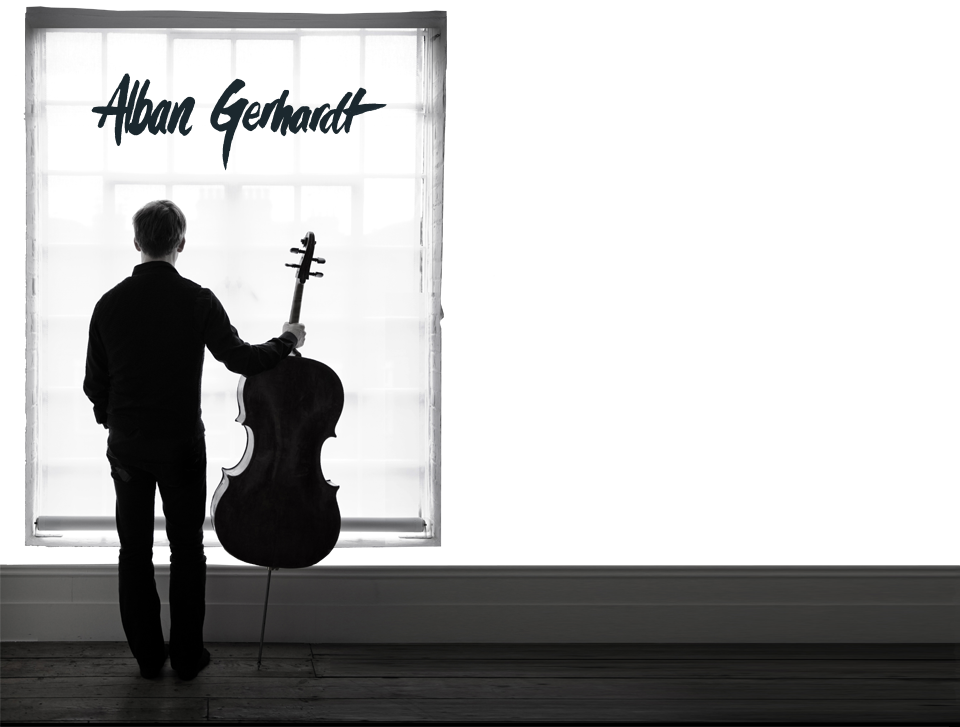Today I received very respectful criticism in a cellist forum about the freedom I take while playing Bach. This is one of my favourite subjects since, and here is my answer:
For the longest time I tried to play and be as close to the score as possible, to give the most faithful rendition to the piece, because I saw that as my duty to the composer. But when listening to myself I had to ask the question if this was really interesting and if this is what music is about. And then I asked myself who the musicians are we admired the most? Are this the musicians who stick closest to the text, or the ones which take us onto a journey and tell us a story? I am not even talking so much about authenticity, which is another highly interesting and very difficult subject, but freedom, rubato or the lack of the same in all kind of music.
Well, in this Forum which I mentioned before, it was about the Prelude of the 6th Bachsuite – the gentleman thought it was a good performance, but not a faithful rendition. Why not? What Bach wrote, is just an abstraction of what he had in his mind. Did they really play metronomically exact? Did the play without personal feelings? They played with much less vibrato, and if they vibrated, they did it with much smaller amplitude, this is clear (but I am doing that while playing Bach). Also the articulation ought to be different, we can’t stay “in the string”, we have to dare to come out of it almost at the end of each note (this is exaggerated, but in a way the feeling of it). But should Bach be played strict in tempo? It took me a long time, actually until now, to liberate myself from the pressure of metronome in Baroque and Classical Music. Oh, Beethoven can be so dull if it is being played without the passion which can express itself in sometimes completely loosing it and “going for it”.
Once I received a very touching compliment Jordi Savall, this most amazing viola da gamba player, who apparently loved my account of exactly the Prelude of the 6th Bach Suite, and he seemed pretty sincere. Had I been authentic? Very inspiring I found a performance of the d-minor Suite by Christophe Coin (great French baroque cellist)who played with an amazing freedom and very sensual sound. It was incredibly personal and touching – was he wrong? It wasn’t anything metronomical whatsoever. Who knows, maybe the exact performances of Bach are wrong – wasn’t he a great improviser? And maybe everything we play of him should sound like almost improvised. So was Beethoven, and Mozart – improvising geniuses.
It helped me immensely not to know what the right way was but to know where I wanted to go – to be aware that there are so many ways to play, articulate, speak a single phrase, and if we deprive ourselves of most of these various ways, this music becomes rather boring and uninteresting. We should also never stop taking musical risks, daring things even on stage, even or especially during a performance – sure, things can go wrong this way, and they should, because without risks and experiments no development.
Have to bring my son to bed, Good night,
Alban
Ja, das mit dem Bach ist so fast mein Lieblingsthema, mit dem ich mich regelmäßig mit den verschiedensten Leuten (Journalisten, Musikern, Liebhabern) “anlege”. Werktreue, was ist das? Und ist es gut und nötig? Welche Musiker faszinieren uns denn am meisten? Die, die dem Werk am treuesten sind, oder die, die uns mit auf eine Reise nehmen und eine Geschichte zu erzählen haben? Ich habe so lange gebraucht, die Fesseln, die mir das Studium angelegt hat, abzuwerfen. Ob das, was ich mit Bach anstelle, dem Bach auch selber gefallen hätte, weiß ich beim besten Willen nicht – aber Jordi Savall (wirklich toller, “authentischer” Gambenspieler), der mir neulich nach eben diesem Präludium der 6.Suite mehr als nur herzlich gratuliert hat. Ich glaube, gerade die Bach-Präludien können weitaus freier und mit mehr Rubato gespielt werden, als das meiste romantische Repertoire. Artikulation und Gebrauch des Vibratos sollten auf alle Fälle zum romantischen Artikulieren und Vibrieren verschieden sein, aber es muss eine Geschichte erzählt werden. Sehr inspiriert hat mich einmal ein Aufführung der d-moll-Suite mit Christophe Coin, ein vorzüglicher Musiker und Barockcellist, die mich insbesondere durch ihre unglaubliche metrische Freiheit fasziniert hat. Für mich gibt es nichts langweiligeres als einen politisch korrekten Bach. Authentisch ja, aber persönlich auf alle Fälle auch 🙂
Dass das nun einigen Menschen zusagt und anderen nicht gefällt, ist klar, und ja auch irgendwo der Sinn der Musik. Was mir bisher viel gebracht hat, sowohl als Musiker als auch als Zuhörer, ist das Bewußtsein, dass ich wirklich nicht weiß, was “richtig” ist, dass es, zum Glück, keiner weiß. Dieses Gefühl hilft mir, weiterzusuchen und mich nicht mit dem (musikalisch) Erreichten zufrieden zu geben. Wir sollten auch nie aufhören, selbst auf der Bühne Wagnisse einzugehen und musikalische Experimente auszuprobieren. Klar, die können daneben gehen, dürfen sie auch, aber ohne Risiko auch keine Entwicklung.
Etwas sprunghaft, was ich da jetzt geschrieben haben, aber ich muss mein Kindchen ins Bett stecken, keine Zeit, das jetzt noch besser auszufeilen….





